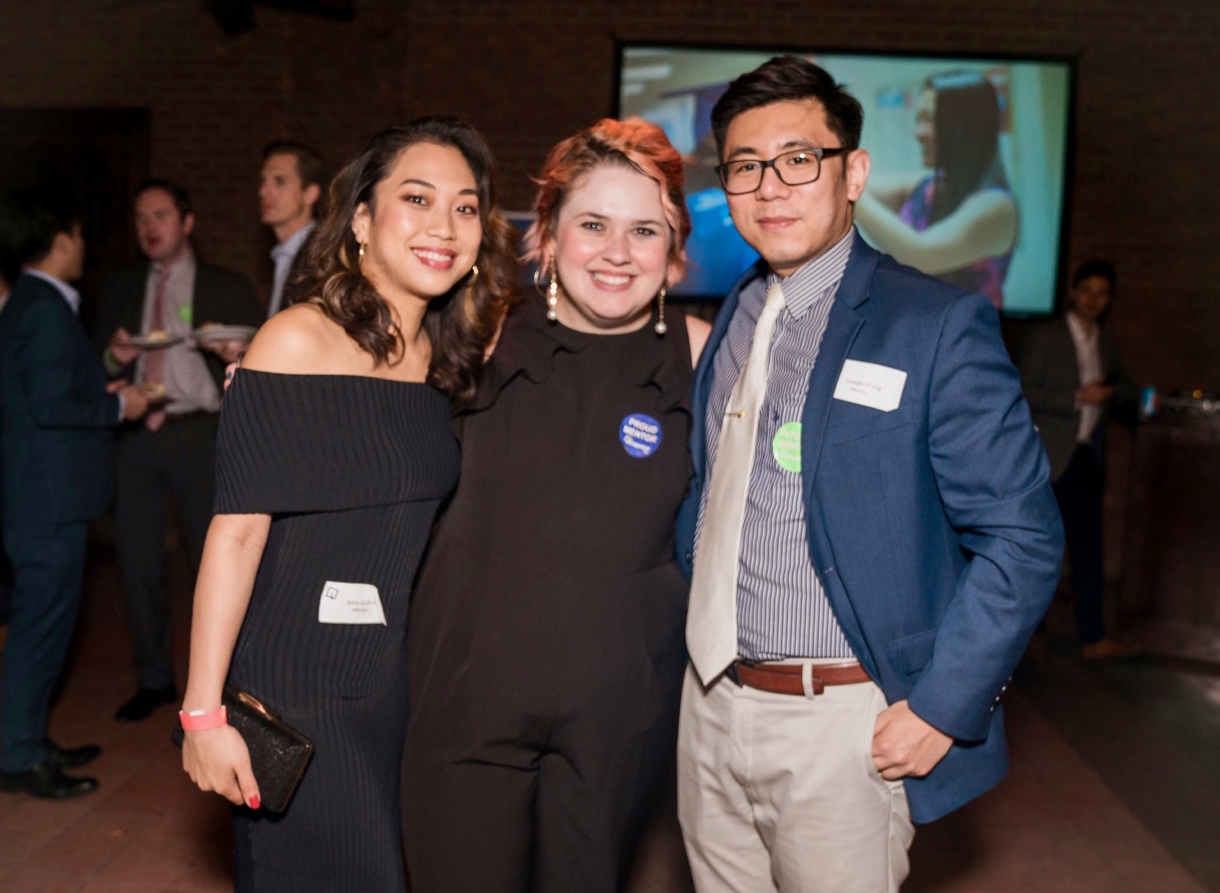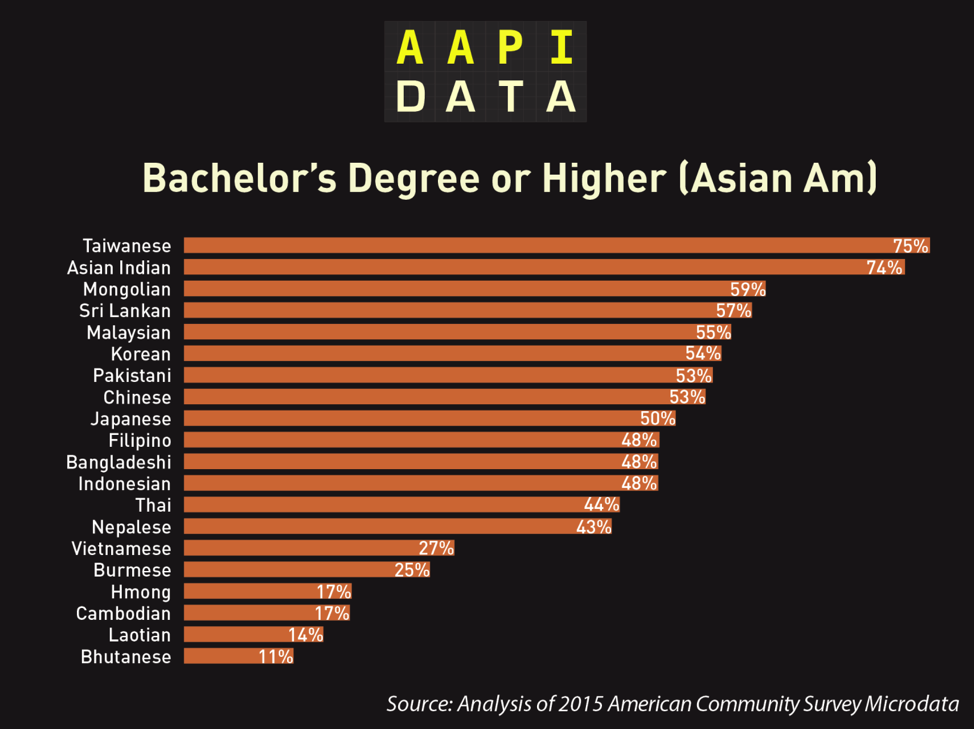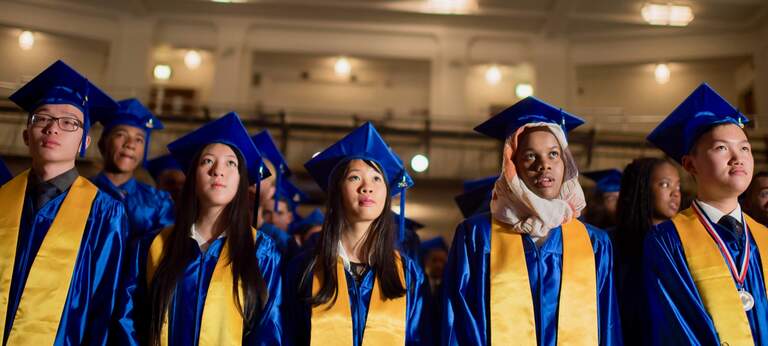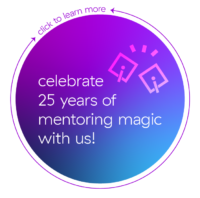I immigrated to the United States from China at the age of five. During my first few years in America, my family moved around constantly—from Nebraska to Florida to Colorado to wherever my parents could find steady work.
Growing up, I resented my parents for all the “extra” responsibilities I had because of their struggles with English: translating the mail, interpreting at doctor’s appointments, answering phone calls. In the communities where we lived, there were no Chinese or Asian communities, so I was surrounded by those who looked very different from me.
In my high school, I was the only person of Chinese heritage and the only immigrant in my class. As a result, I internalized much of the racism and stereotypes placed upon me growing up.
Lucky for me, I had a high school teacher and strong mentor who helped guide me through many of the cultural challenges, confidence issues, and identity issues I struggled with. She was the first person ever to tell me that I was capable, to call me out when I was slacking, and to support me beyond academics.
Trust me, I had many questions and concerns to share with her…
Why do I need to wear a suit to the school dance? It’s in the gym.
What do I say when people ask me for math help?
I’m afraid to bring my friends home to meet my parents.
I’m afraid to bring my girlfriend home to meet my parents.
I’m afraid of anyone meeting my parents.
Should I bring my mom’s cooking to school even if my classmates say it smells bad?
What do I wear underneath a graduation grown?
On the more practical side, my mentor also helped me navigate many of the challenges my parents could not help with, such as applying to college and understanding my career options. Getting a college education was important to me and my parents. In fact, it was the reason my parents worked so hard to make it in America, and my mentor helped me understand the sacrifices they had to make. Nonetheless, my parents’ conception of post-secondary success was limited to their experiences in China. They only knew that I should become an engineer, doctor, or lawyer. My mentor helped me understand my choices even when I didn’t know what I wanted to do with my life.

When people believe and perpetuate the model minority myth, they essentially disregard hundreds of years of American colonization, slavery, power dynamics, immigration policy, and racism and discrimination. The stereotype that all Asian Americans are well-educated also does a huge disservice to the Asian American groups who continue to suffer from educational inequity in our country. When disaggregating the data, it’s clear that there is a wide range of degree attainment among Asian Americans, and many AAPI groups have the lowest levels in the nation:

When policies and programs are created based on stereotypes, real people and communities suffer.
Without my mentor, I would not have had the transformational experience of college. Even though college was difficult for me due to many factors, higher education helped me grow as a person, connected me to communities where I finally felt I belonged, and enabled me to explore important career options.
I wanted to help many other students achieve their post-secondary dreams, and today, I’m grateful to work for an organization whose mission is to do just that. The evidence is clear: A college degree is key to economic opportunity, especially for low-income and first-generation students. At iMentor, we support our students through mentorship, a time-tested form of youth development that I personally believe in.
I was proud to celebrate Asian American Heritage Month in May with iMentor, and want to shout out iMentor’s nearly 1,500 mentors and mentees who identity as AAPI and celebrate the rich cultures and experiences they bring to their mentoring relationships. We recently hosted an organization-wide discussion featuring AAPI staff, mentors, and students discussing the “bamboo ceiling,” a term coined to describe the racism and stereotypes that AAPI members face in advancing professionally.
An iMentor NYC student, Thy, described her dreams of becoming an environmental scientist. She and her family are recent immigrants from Vietnam. Another student, Jia Qi, expressed his desire to become an animator. He is from China originally. The students heard advice from one of our Bay Area mentors who spoke about working in Silicon Valley and being one of the few Cambodian Americans at work, and from iMentor COO Jana Reed, who spoke about her experience in politics, charter schools, and as an adoptee from Korea.
One of Thy’s comment stood out to me in particular: “I am Vietnamese and there are not a lot of us here, but I’m proud to be Asian and I want to show those around me that we’re capable. I want to inspire others and be a [role model] for those younger… [even though] it worries me, really worries me that there are not a lot of Asian Americans in leadership.”
I continue to be in awe of the rich diversity that makes up AAPI communities. It was amazing and cathartic to see a group of AAPI stakeholders from iMentor come together to talk about their dreams, struggles, stories, and to lift one another up.
Despite the obstacles, I know all our students can reach their highest potentials. I’m excited to see iMentor students seize the opportunities available to them. I could not be more grateful for my mentors and all the mentors who help us on our journeys.
Joseph Zhang has served as development manager at iMentor since 2017.

